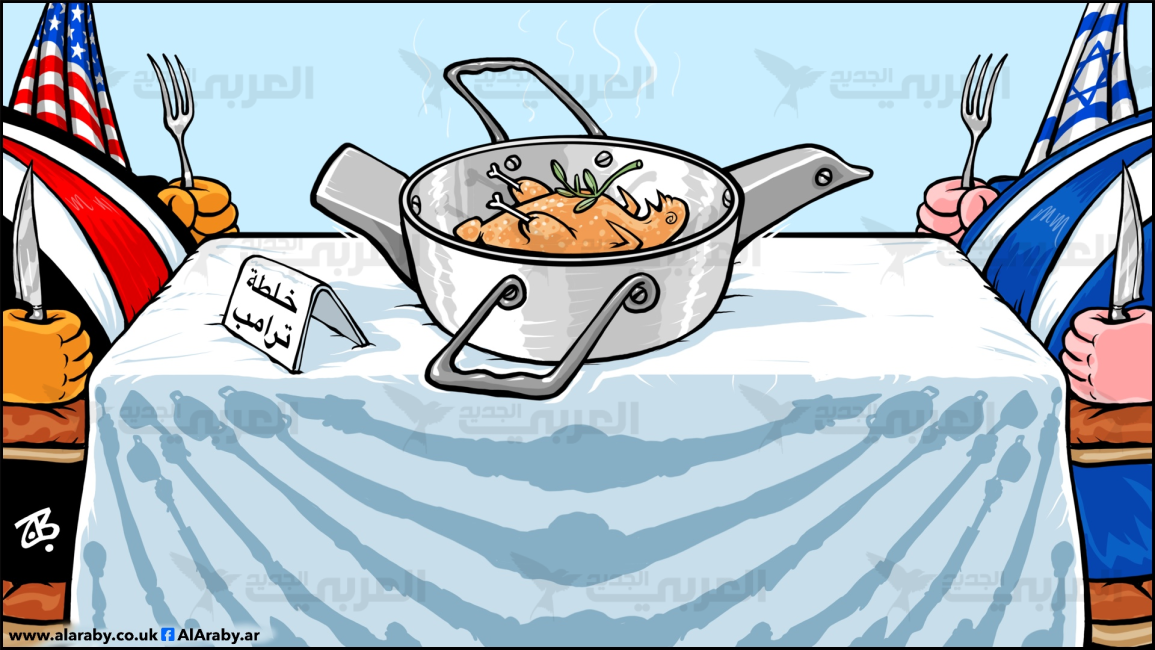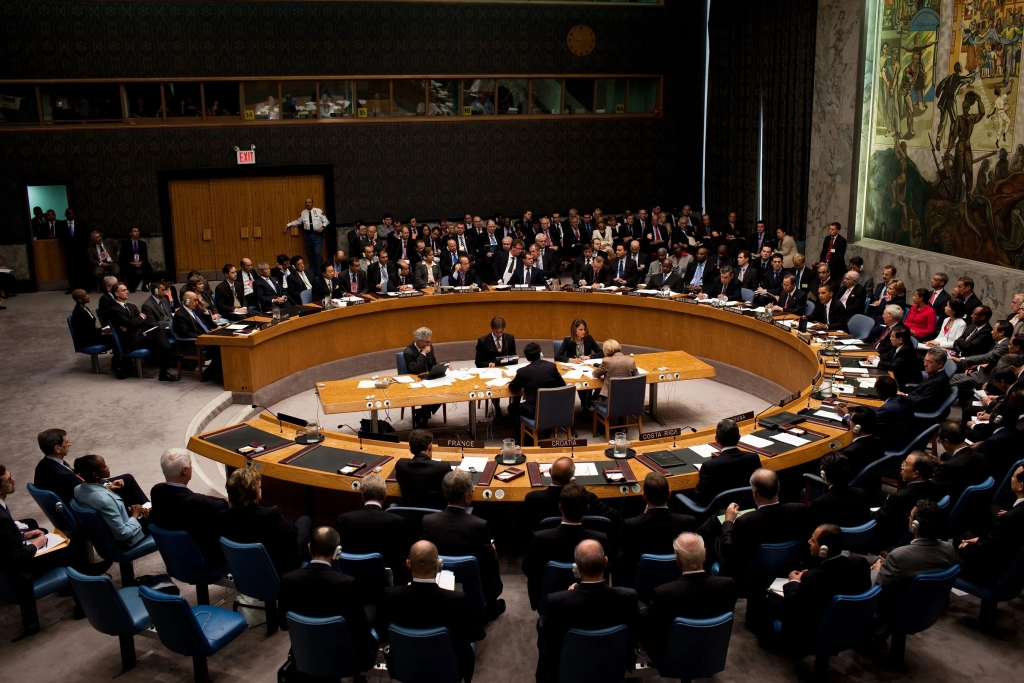
MOVING FORWARD: "After the near completion of the first phase of U.S. President Donald Trump's plan, doubts are growing about the feasibility of moving forward with the subsequent phases," maintains Palestinian commentator Hani al-Masri on Tuesday's Qatari-owned, London-based, pan-Arab news portal www.alaraby.co.uk.
Once the remaining six Israeli bodies are handed over, the Israeli government's room for maneuver will narrow, especially since it has linked the transition to the second phase to conditions that contradict the plan itself, most notably the release of those bodies. Furthermore, Israel continues to violate the ceasefire agreement by failing to reopen the Rafah crossing and allowing only a quarter of the agreed-upon humanitarian aid to enter, alongside ongoing breaches of the ceasefire that have resulted in the killing of more than 250 Palestinians, the injury of many others, and the ongoing destruction of remaining homes, buildings, and infrastructure, especially in areas still under the occupation's direct control. The clearest indication that Trump's plan is doomed to fail is the draft U.S. resolution submitted to the UN Security Council, which carries grave risks far outweighing the hopes it purports to offer. The draft does not make the Security Council the governing reference for the proposed International Stabilization Force but merely authorizes the Security Council to form it without granting it oversight or accountability powers. More dangerously, this force is assigned executive tasks that include disarmament, even though the resolution does not invoke Chapter VII of the UN Charter, which authorizes the use of force. This, in effect, means imposing a form of colonial patronage over the Gaza Strip under international legitimacy, under the guise of the Board of Peace chaired by Trump, with Tony Blair or Jared Kushner or similar figures assisting him.
The plan speaks of an International Stabilization Force (ISF) composed of Arab and foreign troops, tasked with security enforcement and disarmament, not peacekeeping. Its deployment could take place before, during, or after an Israeli withdrawal to a new line, with Israeli forces remaining in the buffer zone. This opens the door to overlapping authorities, power struggles, and the potential for armed clashes. Complicating matters further, Netanyahu is seeking U.S. guarantees allowing the continuation of Israeli military operations under the pretext of safeguarding 'Israeli national security,' meaning that the occupation will remain the central actor even in the presence of an international force.
If implemented, the plan would create a reality in which multiple armed actors operate within Gaza: Arab and foreign troops under the ISF; Palestinian police trained in Egypt and Jordan; police affiliated with the de facto ruling establishment in Gaza; the military wings of factions and local family militias; and collaborator militias loyal to the occupation. This multiplicity of authorities is a recipe for inevitable failure and possibly chaos and bloody clashes. For this reason, the states expected to participate in the force are hesitant, unless the resolution's text is radically revised and mechanisms for coordination and full Israeli withdrawal are clearly defined.
The draft resolution requires the formation of a Board of Peace chaired by Trump as a transitional authority to govern Gaza for two years, renewable with no clear or final time limit. This board would control Palestinian decision-making and the fate of the Gaza Strip until the PA carries out reforms to the 'satisfaction' of the Board of Peace, not the Palestinian people. Even reconstruction and the reopening of crossings are to be tied to political and security conditions, such as the disarmament of the resistance, Hamas relinquishing power, the PA's exclusion from direct administration, and the 'removal of extremism' from the Strip. The plan even allows for partial implementation in areas deemed 'terror-free', enshrining a division of Gaza into two zones: One provided support and reconstruction (the 'yellow zone'), and another besieged, punished, and exposed to raids, assassinations, and bombardment. This paves the way for new internal displacement and the creation of a 'Middle Eastern Riviera' in one part of the Strip, while the siege and suffering of the other continues.
There are several possible scenarios moving forward, starting with the continuation of the status quo, with no progress in implementing the plan. Israel would maintain control over more than half of the Strip, benefiting from Hamas's continued rule to entrench division, separate the West Bank from Gaza, and use this situation to justify ongoing blockade and aggression. Israel also fears falling into the trap of an international force or a political process that could lead to a Palestinian state, particularly as it heads into uncertain elections where the campaigning frenzy fuels more extremism, aggression, and racism.
A more difficult scenario is the full implementation of Trump's plan. Though challenging, it remains possible as Trump warns of a renewed war if the U.S. resolution is not passed. However, any chance of that is fading due to Russian and Chinese opposition to the draft and the likelihood they would veto it, in light of widespread Palestinian, Arab, and international rejection. The most probable outcome is a compromise between Trump's proposal and Arab and international demands, granting the PA a real and expanding role, linking disarmament to gradual, parallel steps tied to reconstruction, national reconciliation, and a political horizon, along with a long-term truce. This scenario could gain international acceptance, especially if the Board of Peace is granted powers of supervision and oversight, not governance, if its governing authority is the Security Council, not Trump, if it includes credible Arab and international figures; and if conflicts of authority among the various existing and new structures are resolved. In that case, the plan might balance reality, possibility, and aspiration, but it would still be fragile unless built on genuine Palestinian unity and a concerted Arab/Islamic/international stance that pressures Trump.
Although a renewed war is unlikely, it remains a possible scenario. Most of the reasons that halted the genocidal war still exist, and Israel is entering election season in an atmosphere charged with one-upmanship and extremism, which could prompt new rounds of aggression aimed at winning votes that enable the ruling coalition parties (or a similar ones) to prevail again. However, a renewed war would proceed at different tempos and would not take the form of all-out genocide and destruction. What Israel failed to achieve over two years will not be easy to accomplish now that it stands isolated and reviled globally, with popular uprisings poised against it.
The PA remains the weakest link in this picture. Its political and popular legitimacy is eroded; its strategy is one of survival, waiting, and avoiding blame; and its institutions are nearly paralyzed. If it does not reject Trump's plan, especially the colonial patronage board and the empowerment of the ISF to enforce security and disarmament by force without a political horizon leading to the end of occupation and realization of independence, and if it tacitly or explicitly accepts its exclusion from the current political process in Gaza, it will be paving the way for its own erasure from the equation everywhere. The PA must therefore take the initiative to restore political legitimacy through a genuine national consensus on a central goal and the means of struggle to achieve it, pending elections in which the people choose their representatives. It is crucial to broaden the representation and legitimacy of the technocratic committee by including factions, civil society, youth, women, and the diaspora, and establish a reference authority for it and for the PA as a whole, ideally, a temporary leadership framework of the PLO. Fundamental reforms must also be carried out within PA and PLO institutions (including the factions), especially tackling rampant corruption, in ways that serve Palestinian interests, needs, and priorities, not external dictates. The PA must clearly declare its rejection of any patronage council or force seeking to impose disarmament by force, since the right to resist occupation and to self-defense is a sacred one. For its part, Hamas must show a genuine willingness to relinquish exclusive control in exchange for real national partnership and a unified national reference.
Trump's plan is doomed to fail because it ignores the roots and causes of the conflict, contradicts the basic foundations of freedom, justice, and sovereignty for the Palestinian people, and reproduces occupation in a new, internationally ornamented form.
"The only realistic alternative is a Palestinian one based on democratic national consensus and struggle that rebuilds the Palestinian political system on national, democratic, and struggle-oriented foundations and genuine partnership, rather than having a colonial patronage council imposed to decide on behalf of Palestinians who is 'fit to govern' and who deserves life and support," concludes Masri.
Ends…



